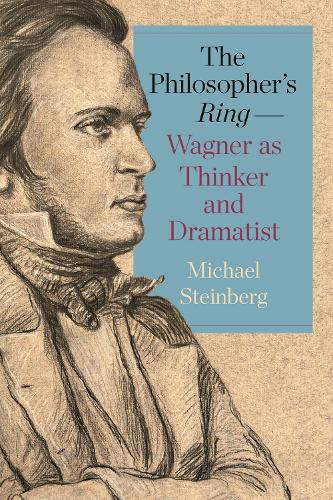Readings Newsletter
Become a Readings Member to make your shopping experience even easier.
Sign in or sign up for free!
You’re not far away from qualifying for FREE standard shipping within Australia
You’ve qualified for FREE standard shipping within Australia
The cart is loading…






Presents Wagner as a serious philosopher and offers a fresh perspective on the Ring and its unique fusion of myth, human drama, and philosophical insight.
Few figures of the nineteenth century were more influential than Richard Wagner, and few works of art have the scope and historical significance of The Ring of the Nibelung. Wagner himself said that it expressed his entire philosophy of life. Yet little attention has been paid to him as a philosopher, aesthetic theories aside. Instead, the Ring has been viewed in the light of Schopenhauer, Feuerbach, or even Hegel. Wagner's own ideas do not deserve this neglect, and this book addresses that omission. It starts with the more widely read philosophers of his day, such as Fichte; in their context Wagner's often fragmentary thoughts reveal a coherent "materialist idealism" that constitutes a late but significant contribution to Classical German philosophy. His acute social and psychological insights are still relevant, and so is the philosophical history that he saw prefigured in Greek tragedy.
Wagner's philosophy also illuminates the structure of the Ring and offers fresh insights into the characters and conflicts of that endlessly interpretable work. Approachable and engagingly written, balancing narrative, philosophical analysis, and a detailed consideration of the Ring's four music dramas, The Philosopher's Ring shows the cycle to be a work of unparalleled philosophical depth, one reason that it continues to challenge audiences even now, a century and a half after its premiere.
$9.00 standard shipping within Australia
FREE standard shipping within Australia for orders over $100.00
Express & International shipping calculated at checkout
Stock availability can be subject to change without notice. We recommend calling the shop or contacting our online team to check availability of low stock items. Please see our Shopping Online page for more details.
Presents Wagner as a serious philosopher and offers a fresh perspective on the Ring and its unique fusion of myth, human drama, and philosophical insight.
Few figures of the nineteenth century were more influential than Richard Wagner, and few works of art have the scope and historical significance of The Ring of the Nibelung. Wagner himself said that it expressed his entire philosophy of life. Yet little attention has been paid to him as a philosopher, aesthetic theories aside. Instead, the Ring has been viewed in the light of Schopenhauer, Feuerbach, or even Hegel. Wagner's own ideas do not deserve this neglect, and this book addresses that omission. It starts with the more widely read philosophers of his day, such as Fichte; in their context Wagner's often fragmentary thoughts reveal a coherent "materialist idealism" that constitutes a late but significant contribution to Classical German philosophy. His acute social and psychological insights are still relevant, and so is the philosophical history that he saw prefigured in Greek tragedy.
Wagner's philosophy also illuminates the structure of the Ring and offers fresh insights into the characters and conflicts of that endlessly interpretable work. Approachable and engagingly written, balancing narrative, philosophical analysis, and a detailed consideration of the Ring's four music dramas, The Philosopher's Ring shows the cycle to be a work of unparalleled philosophical depth, one reason that it continues to challenge audiences even now, a century and a half after its premiere.